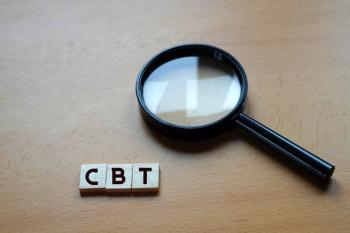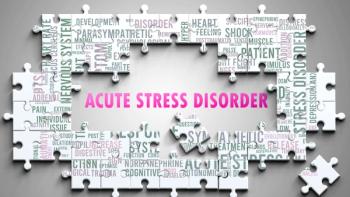
Tetris Used as Therapy to Reduce PTSD Symptoms in Pandemic Healthcare Workers
During the COVID-19 pandemic, healthcare workers faced several mental health challenges, experiencing repeated exposure to life-threatening situations that increased their risk of PTSD and other trauma-related conditions.
Interventions using video games, such as Tetris, have shown to reduce intrusive thoughts or effects of post-traumatic stress disorder (PTSD) in healthcare workers who were exposed to trauma during the COVID-19 pandemic, according to a recent
This approach, which combines a memory recall task with visuospatial gameplay — the ability to perceive and transform visual patterns and images — significantly reduced the frequency of intrusive thoughts and related PTSD symptoms after just guided session.
Intrusive thoughts or memories — vivid, involuntary recollections of traumatic events — is a common PTSD symptom that can cause great distress for those affected.
During the COVID-19 pandemic, healthcare workers faced several mental health challenges, experiencing repeated exposure to life-threatening situations that increased their risk of PTSD and other trauma-related conditions.
While traditional treatments such as trauma-focused cognitive behavioral therapy (TFCBT) and eye movement desensitization and reprocessing (EMDR) are proven to be effective, they often present barriers such as stigma around mental health, time constraints and finding time to fit sessions into busy schedules, authors state.
To address these limitations, researchers of the study developed an intervention based on neuroscience principles, designed to disrupt the vividness of intrusive thoughts by combining memory recall with a visuospatial task like playing Tetris.
Unlike other therapies, this method avoided detailed trauma discussions, offering a more quick, accessible alternative that’s easier to use and can be delivered digitally.
Based on the challenges healthcare workers face in accessing mental healthcare, researchers tested whether a single-session intervention could provide meaningful benefits while addressing accessibility barriers.
The randomized controlled trial was conducted in Sweden and involved 164 healthcare workers who had experienced at least one traumatic event related to their clinical work during the pandemic and reported at least two intrusive thoughts in the week before recruitment.
Participants were randomly assigned to one of two groups: the intervention group that participated in a 30-minute guided session pairing memory recall with playing Tetris, while the control group engaged in a podcast-based task.
The primary outcome was the number of intrusive thoughts, assessed at the beginning of the trial and five weeks post-intervention, with follow-ups at one, three and six months to evaluate PTSD symptoms.
Results showed that participants in the intervention group experienced an 85.9% reduction in intrusive thoughts by week five compared to the start of the trial, with half of the group reporting no intrusive memories at all.
It was also found that participants reported ongoing reductions in PTSD-related symptoms, improved workplace performance and enhanced well-being over the six-month follow-up period. The control group showed no comparable improvements.
This study's focus on healthcare workers and their ongoing trauma represents a significance, as most trauma-focused research occurs post-exposure, authors say. The simplicity of the intervention — requiring just one guided session and an easy-to-use game — increases its potential for widespread use.
Additionally, the study’s design, including blinded assessments and long-term follow-ups, support its findings.
While this study shows promise, some limitations do exist.
The reliance on self-reported data could introduce bias, and the lack of formal PTSD diagnoses limits precise results. Since the study focused on Swedish healthcare workers, it limits findings to other groups or cultures.
Despite these issues, the intervention’s use of cognitive distraction to reduce intrusive thoughts offers a low-burden alternative to traditional therapies.
Researchers recommend future research should improve the digital format in the intervention, explore its use and test its effectiveness in broader, more diverse populations.
Newsletter
Get the latest industry news, event updates, and more from Managed healthcare Executive.























